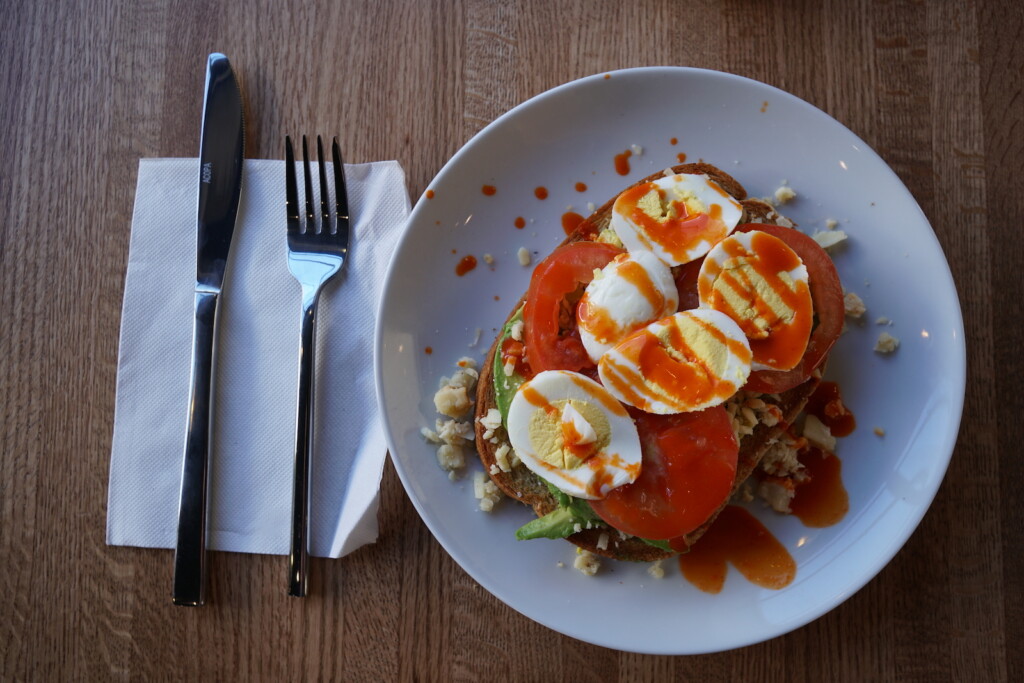From Meth to Manager:
“I used meth with my mom at the age of 13 for the first time, and I didn’t stop until 28 years old.“
It’s a line that stops you cold. For Nicholas Smith, that brutal reality was just the beginning of a cycle of addiction, incarceration, and broken family ties. But what makes his story remarkable is not where it started — it’s where it’s headed.
Today, Nicholas stands as a mentor and leader at The Other Side Academy (TOSA), a transformative community dedicated to helping those society often writes off. Through grit, hard lessons, and unflinching honesty, he has not only reclaimed his life but now helps others do the same.
A Childhood in Chaos
“I didn’t know any different. I thought everybody lived that way.”
Growing up in the small town of Vernal, Utah, Nicholas wasn’t riding bikes with friends or playing video games. Instead, he was experimenting with methamphetamine—introduced to him by his own mother. By 13, he had his first felony. By 22, he was serving time in prison, following the same path his mother once walked. It’s a story that would likely end in tragedy for many, but for him, it was the start of something more profound.
“I didn’t know any different,” he recalls. “I thought everybody lived that way.” With a father deported at age eight, six brothers who fled to live with relatives, and a home that resembled more of a “trap house” than a safe haven, Nicholas was left in an environment that shaped his childhood. By his teens, he was already entrenched in a cycle of crime, drug use, and detention. Each new arrest brought a more severe sentence. Thirty days turned into 60, which turned into six months. The pattern was clear—no way out, only down.
A Moment of Clarity
“I remember looking at him thinking he was more of a man at that moment than I’d ever been.”
But sometimes change comes in a moment of clarity. For Nicholas, that moment hit him like a punch to the gut. The police had come knocking on his ex-wife’s door. As they led him out in handcuffs, he glanced back at his 12-year-old son. The boy took his younger siblings by the hand and led them upstairs without tears or protest. “I remember looking at him thinking he was more of a man in that moment than I’d ever been,” Nicholas says. It was a wake-up call. He vowed that he would never put his kids through that again.
Sitting in jail once more, Nicholas heard whispers about a place called The Other Side Academy. It wasn’t jail, but it wasn’t easy either. “This guy was complaining about it,” Nicholas remembers. “They put you to work right away. They yell at you when you make mistakes.” But to Nicholas, it sounded like heaven. “You get a job, you get to work, and they teach you. Sign me up.” He called The Other Side Academy and spoke with Director Dave Durocher. Dave’s words cut deep. “Do you love your kids?” he asked. The conversation that followed was blunt and honest—hallmarks of The Other Side Academy’s approach to transformation. It was enough to get Nicholas in the door.
The Journey at The Other Side Academy
“Either I do this 100% or I go back to prison.“
Once at the Academy, Nicholas faced his toughest test yet—himself. “Either I do this 100% or I go back to prison,” he says. With that mindset, he dug in. The Other Side Academy requires more than just compliance. It’s a program of accountability, peer correction, and radical honesty. Each day, residents hold “pull-ups,” where community members call each other out for poor behavior. It sounds harsh, but Nicholas says it’s love in its truest form. “We believe real love is addressing the flaws in you that you don’t see in yourself so that you can fix them,” he explains.
He embraced every part of it. From working entry-level jobs to climbing to a management role, he leaned on the Academy’s “each one, teach one” model. His natural leadership emerged. By the end of his stay, he was operating the IT department, managing technical systems for five businesses and two campuses in two states. He was no longer just “the felon.” He was a man with skills, purpose, and—most importantly—a father his kids could look up to.
Journey to Fatherhood
“I wanted to do better than my dad did.”
For Nicholas Smith, fatherhood wasn’t something he learned — it was something he fought for. His childhood was marked by chaos, and by 18, he had children of his own but no roadmap for how to be a father. “I wanted to do better than my dad did,” he said. But without any guidance on how to be present, he stumbled. After serving time in prison, Nicholas thought he had it figured out. He had plans to stay out of trouble and be the father his kids deserved. But within three months of his release, he was back behind bars, and the cycle began again.
Determined to never let his children see him like that again, Nicholas took a chance on The Other Side Academy. It was a world of radical accountability and honest confrontation — the opposite of what he had known growing up. But it was exactly what he needed. Over time, he embraced the Academy’s lessons of love through tough feedback. Slowly, he became the man he always wanted to be — a man his kids could be proud of. That love didn’t just change him — it rippled out to his children.
Today, Nicholas is a father in every sense of the word. His 9-year-old son has no memory of the man he used to be. His 11-year-old daughter, facing her own struggles, now sees what love and accountability look like in action. For his 17-year-old son — the boy who once silently led his siblings upstairs — Nicholas is present. He’s not just in the room. He’s a father who stays, listens, and leads.
A New Role: From IT to Donut Shop GM
“You walk into my shop today, and you wouldn’t believe that less than a year ago, these guys were sleeping on the streets.”
Today, Nicholas serves as General Manager at The Other Side Donuts, a social enterprise where formerly homeless and incarcerated individuals learn leadership, work ethic, and accountability. He leads a team of individuals once written off by society—people who, like him, have experienced the system from the inside. “You walk into my shop today, and you wouldn’t believe that less than a year ago, these guys were sleeping on the streets,” Nicholas says.
The Other Side Academy doesn’t just make donuts. It creates second chances. It gives people the tools to write a new story for themselves. “It’s not just about selling donuts,” Nicholas says. “It’s about leadership, accountability, and giving people the skills to succeed in life.” His shop operates a food truck, a food trailer, and a retail site at 760 South Redwood Road in Salt Lake City. It’s not uncommon to see locals chatting with the staff, sharing stories, and supporting the people behind the counter.
In every donut served, there’s more than glaze and sprinkles—there’s the story of redemption. There’s Nicholas, now a father, a leader, and a man with a future. His son, once stoic and emotionless as police led his father away, now has a present father who shows up for him. And for Nicholas, that’s everything.
Watch the Full Interview
Want to hear the full story directly from Nicholas himself? Watch the full interview with Utah Stories on YouTube. See how he went from incarceration to inspiration, with raw, honest details that reveal how lives can be rebuilt one small step at a time.
How to Support The Other Side Academy
If you want to support The Other Side Academy, stop by The Other Side Donuts or visit their location at 760 S. Redwood Road. Every purchase supports the Academy’s mission of helping men and women transform their lives.
If you’d like to be part of something larger, consider becoming a member of Utah Stories, where we tell the stories that matter most. For just $5 a month, you can support local journalism and help bring stories like Nicholas’ to the world.
Learn more at https://utahstories.com/subscribe/






